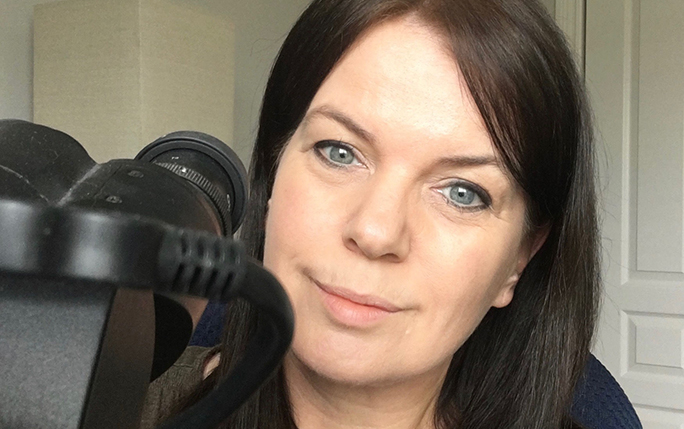Liverpool vets at work: Nicola Parry

Nicola Parry (BVSc 1997) has specialised in veterinary pathology since 2000. She is currently self-employed, working as an independent pathology consultant. Her work is varied, and involves collaborating with researchers, working on education-related projects, and serving as a volunteer on different committees.
What is your current role?
Since 2014, I have been self-employed as an independent consultant in anatomic pathology, which mostly involves collaborating in projects with researchers both in academia and in the pharmaceutical industry. In this role, I examine tissues from animals involved in different types of studies—in drug discovery or preclinical toxicology, for example.
What career path led you to your current role?
I really enjoyed pathology at vet school, and I knew, even then, that I would probably eventually specialise in this area. But, I still wanted to work in general practice, so I spent a few years in mixed practice after graduation, before moving to the United States in 2000 to pursue a residency in anatomic pathology at the University of Pennsylvania. I became board certified by the American College of Veterinary Pathologists (ACVP) and spent 14 years working at universities in the US.
What does your job entail, describe a typical day?
Having spent so much time in academia, my overall job role is still very much focused on the “three missions” of academia: research, education, and service.
My typical day involves spending the morning working at the microscope, reading slides from research projects and writing reports. And then I often switch over in the afternoon to work on education and service-related projects.
My education-related projects vary, and include helping medical education companies to put together grant proposals for continuing professional development programs, with my role being to perform needs assessments for whichever therapeutic area they are trying to target. Other education-related projects involve mentoring veterinary pathology residents, and also contributing to test item-writing workshops for general veterinary and veterinary pathology examinations.
On the service side of things, I volunteer on various committees within several veterinary professional organisations, including the American Veterinary Medical Association, the ACVP, and the Indiana Veterinary Medical Association.
What is the best thing about your job?
I have two favourite things that kind of go together. One is that I enjoy the problem-solving nature of working in pathology, and the second is the way that this makes the pathologist an important part of the team in any collaboration—whether working in diagnostic or research pathology.
What is the worst thing about your job?
At the moment, the worst part of my job is the isolation that goes along with working as an independent consultant from a home-based office. But, this is where it helps to schedule some variety into my days, because this allows me to at least communicate with different groups most days. This involves organising things like telephone conferences and video conferences with researchers.
What advice would you give to students or alumni that might be considering a similar role?
I’d advise first chatting with some pathologists to get an idea of the many different routes that specialising in pathology can take you along. Also speak with some pathology residents, to learn about what the different residency programmes are like.
One thing to know, too, is that pathology comprises two subspecialties—anatomic (involving mostly histopathology and postmortem examinations) and clinical (mostly evaluating bloodwork data, as well as examining haematology and cytology preparations, for example).
Although there is some overlap between the two areas, you should know that most training programmes in the UK and the US require you to choose between pursuing anatomic or clinical pathology. After three years of training, you’ll then take the corresponding subspecialty examination (via the Royal College of Pathologists or the ACVP). The European College of Pathologists also offers a board-certifying examination.
So, if you think you might want to pursue a residency in pathology, arrange to shadow some pathologists or residents for a week or two at a time, to get a feel for which subspecialty you might prefer to choose. And when you eventually start applying for residency positions, be sure to target only those that offer some decent structure to their programmes. This structure should serve to provide you with both real-life experience working as a pathologist from week to week, as well as regularly scheduled sessions geared toward preparing you for your board-certifying examination.